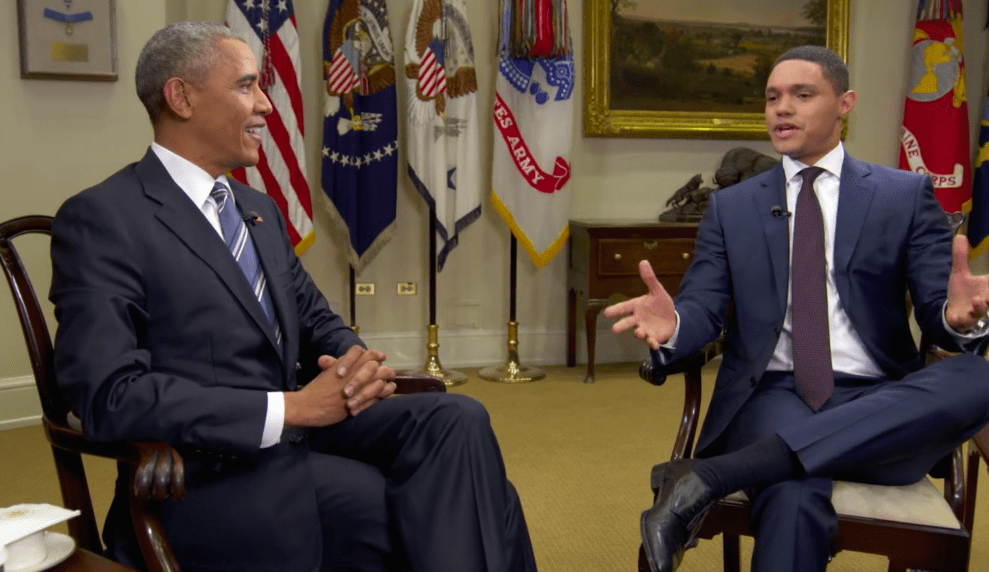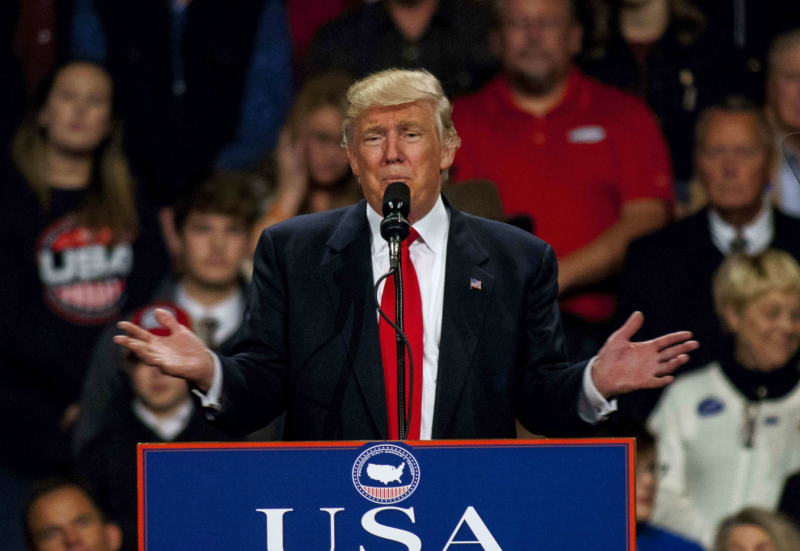At Thursday morning’s Senate Armed Services Committee hearing about Russian hacking during the 2016 elections, little new information was revealed about Moscow’s meddling in the presidential campaign. Director of National Intelligence James Clapper did say that the intelligence community’s review ordered by President Barack Obama of the Russian operation will be done early next week and will yield an unclassified report for public release. “I intend to push the envelope as much as I can,” Clapper said, referring to information the report will make public.
Clapper also noted that the intelligence community is now more “resolute” in its assessment that Russian intelligence was behind the cyber thefts and subsequent public dissemination of emails from the Democratic Party and John Podesta, the chairman of Hillary Clinton’s campaign. He also testified that the public report will include an assessment of Moscow’s motives behind this operation—the CIA concluded weeks ago that the motive was to boost Donald Trump’s prospects—and that there was “actually more than one motive.”
Though the hearing did not expand public knowledge of the Russian hack, it did serve a political purpose: to slap Trump for both his refusal to acknowledge Russian involvement in the hacking and his related disparagement of the intelligence community. Several senators seized the opportunity to challenge the president-elect’s denialism and to send him a message. Some referred to him directly; some took veiled—though barely veiled—shots. Opening the hearing, Sen. John McCain (R-Ariz.), the committee’s chairman, said there was “still much we don’t know…But Russian intrusions [in the election]…are not in any doubt.” And Sen. Jack Reed (D-R.I.), the senior Democrat on the committee, scoffed at the “indifference of some to this matter” and asked Clapper if the hacking was a stand-alone Russian operation. (Clapper replied, “This was a multifaceted campaign. The hacking was only one part of it. It also entailed classical propaganda, disinformation, fake news.”)
Other Democratic senators also banged on Trump. Sen. Claire McCaskill thanked McCain and Sen. Lindsey Graham (R-S.C.), another member of the committee, for defending the intelligence community against Trump’s insults. And referring to Trump’s approving tweets about WikiLeaks chief Julian Assange—Trump indicated he believed Assange was more credible that US intelligence—McCaskill thundered that Trump placing “Julian Assange on a pedestal” relative to the men and women of the US intelligence community ought to cause bipartisan outrage. Pointing to widespread Republican silence on this front, she added, “Mark my word, if the roles were reversed, there would be howls from the Republican side of the aisle.” Sen. Richard Blumenthal (D-Conn.) later chimed in that Trump’s “disparagement” of the intelligence community “has been a terrible disservice to our nation…I hope that we will see a change.”
Graham also scolded Trump. “It’s okay to challenge the intel,” he said, adding, “but what I don’t want you to do is undermine” the intelligence community. Noting that Clapper was due to brief Trump on Friday on Russian hacking and other intelligence matters, Graham asked the nation’s top intelligence officer if he was ready to be challenged by the president-elect. “Yes,” Clapper replied.
Other than McCain and Graham, the Republican members of the committee shied away from referring to Trump or even the main matter at hand: the Russian hacking. Many asked about other cyber threats and attacks, such as the Chinese hack that penetrated the US government’s personnel system. It was just too awkward or politically incorrect for them to question Clapper and the other witnesses about the Moscow operation and Putin’s intentions. Sen. Tom Cotton (R-Ark.) even tried to undermine the intelligence community’s assessment that Russia intended to help Trump. “There’s a widespread assumption—this has been expressed by Secretary Clinton herself since the election—that Vladimir Putin favored Donald Trump in this election,” Cotton said. “Donald Trump has proposed to increase our defense budget, to accelerate nuclear modernization, to accelerate ballistic defenses, and to expand and accelerate oil and gas production, which would obviously harm Russia’s economy. Hillary Clinton opposed, or at least was not as enthusiastic about all those measures.” Cotton asked Clapper, “Would each of those put the United States in a stronger strategic position against Russia?” Clapper said that “anything we do to enhance our military capabilities, absolutely.” Then Cotton made his point: “So there is some contrary evidence, despite what the media speculates, that perhaps Donald Trump is not the best candidate for Russia.” He was suggesting that because Trump’s campaign platform had a hawkish military plank, the intelligence community’s assessment was wrong and that Trump was not Putin’s preferred candidate. Clapper did not respond to this argument.
And Sen. Thom Tillis (R-N.C.) won the blame-America-first-to-protect-Trump prize. He tried to diminish the Russian hacking that profited Trump by pointing out that the United States, too, has tried to influence elections overseas:
The glass house comment is something I think is very important. [There was a study] by a professor up at Carnegie Mellon that’s estimated that the United States has been involved in one way or another in 81 different elections since World War II. That doesn’t include coups or regime changes, so tangible evidence where we’ve tried to effect an outcome to our purpose. Russia’s done it some 36 times. In fact, when Russia was apparently trying to influence our election, we had the Israelis accusing us of trying to influence their election. So I’m not here to talk about that, but I am here to say that we live in a big glass house and there are a lot of rocks to throw and I think that that’s consistent with what you said on other matters.
Actually, Tillis was indeed here to talk about this in order to not talk about how Russian intelligence subverted an American election and aided Trump.
Toward the end of the hearing, Sen. Tim Kaine (D-Va.), Clinton’s running mate, took a seat on the dais. When it was his turn to question the witnesses, he noted that a few years ago he was chairman of the Democratic Party and that the party’s office contained a filing cabinet that had been rifled during the Watergate break-in. That burglary, he noted, led to a “high moment” for Congress, when the House and the Senate conducted bipartisan investigations that sought to protect the integrity of American elections. Referring to the Russian hacking, Kaine said, “This is a test of this body.” He wondered if the current Congress would act in a bipartisan fashion to preserve the “integrity of elections.” Judging from the ho-hum attitude of most Republicans on the panel toward the Russian intervention, Kaine may end up being disappointed.
















